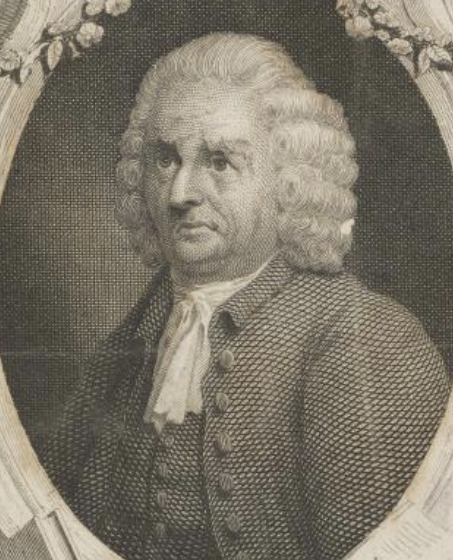A Thanksgiving Reading for the Holiday Table
by William Law | 28 November 2024 |
There is no state of mind so holy, so excellent, and so truly perfect as that of thankfulness to God, and, consequently, nothing is of more importance in religion than that which exercises and improves this habit of mind. A dull, uneasy, complaining spirit, which is sometimes the spirit of those that seem careful of religion, is yet of all tempers the most contrary to religion, for it disowns that God which it pretends to adore.
For he sufficiently disowns God who does not adore Him as a Being of Infinite Goodness. If a man does not believe that all the world is as God’s family, where nothing happens by chance, but all is guided and directed by the care and providence of a Being that is all love and goodness to all His creatures, if a man does not believe this from his heart, he cannot be said truly to believe in God.
And yet he that has this faith has faith enough to overcome the world and always be thankful to God. For he that believes that everything happens to him for the best cannot possibly complain for the want of something that is better. If, therefore, you live in murmurings and complaints, accusing all the accidents of life, it is not because you are a weak infirm creature, but it is because you want the first principle of religion: a right belief in God. For as thankfulness is an express acknowledgment of the goodness of God towards you, so repinings and complaints are as plain accusations of God’s want of goodness towards you.
On the other hand, would you know who is the greatest saint in the world? It is not he who prays most or fasts most; it is not he who gives most alms or is most eminent for temperance, chastity, or justice; but it is he who is always thankful to God, who wills everything that God willeth, who receives everything as an instance of God’s goodness, and has a heart always ready to praise God for it.
All prayer and devotion, fastings and repentance, meditation and retirement, all sacraments and ordinances, are but so many means to render the soul thus divine and conformable to the will of God, and to fill it with thankfulness and praise for everything that comes from God. This is the perfection of all virtues, and all virtues that do not tend to it or proceed from it are but so many false ornaments of a soul not converted unto God.
You need not, therefore, now wonder that I lay so much stress upon singing a psalm at all your devotions since you see it is to form your spirit to such joy and thankfulness to God as is the highest perfection of a divine and holy life.
If any one would tell you the shortest, surest way to all happiness and all perfection, he must tell you to make a rule to yourself to thank and praise God for everything that happens to you. For it is certain that whatever seeming calamity happens to you, if you thank and praise God for it, you turn it into a blessing.
Could you therefore work miracles, you could not do more for yourself than by this thankful spirit, for it heals with a word speaking, and turns all that it touches into happiness. If therefore you would be so true to your eternal interest as to propose this thankfulness as the end of all your religion, if you would but settle it in your mind that this was the state that you were to aim at by all your devotions, you would then have something plain and visible to walk by in all your actions. You would then easily see the effect of your virtues and might safely judge of your improvement in piety. For so far as you renounce all selfish tempers and motions of your own will, and seek for no other happiness but in the thankful reception of everything that happens to you, so far you may be safely reckoned to have advanced in piety.
And although this be the highest temper that you can aim at, though it be the noblest sacrifice that the greatest saint can offer unto God, yet is it not tied to any time, or place, or great occasion, but is always in your power and may be the exercise of every day. For the common events of every day are sufficient to discover and exercise this temper, and may plainly show you how far you are governed in all your actions by this thankful spirit.
A Serious Call to a Devout and Holy Life, p.277.
 William Law (1686-1761) was a Church of England priest. His personal integrity, as well as his writing, greatly influenced the evangelical movement of his day, notably John and Charles Wesley, as well as Enlightenment thinkers such as Dr. Samuel Johnson and the historian Edward Gibbon. Law’s spiritual writings remain in print today, the most well-known being A Serious Call to a Devout and Holy Life.
William Law (1686-1761) was a Church of England priest. His personal integrity, as well as his writing, greatly influenced the evangelical movement of his day, notably John and Charles Wesley, as well as Enlightenment thinkers such as Dr. Samuel Johnson and the historian Edward Gibbon. Law’s spiritual writings remain in print today, the most well-known being A Serious Call to a Devout and Holy Life.




